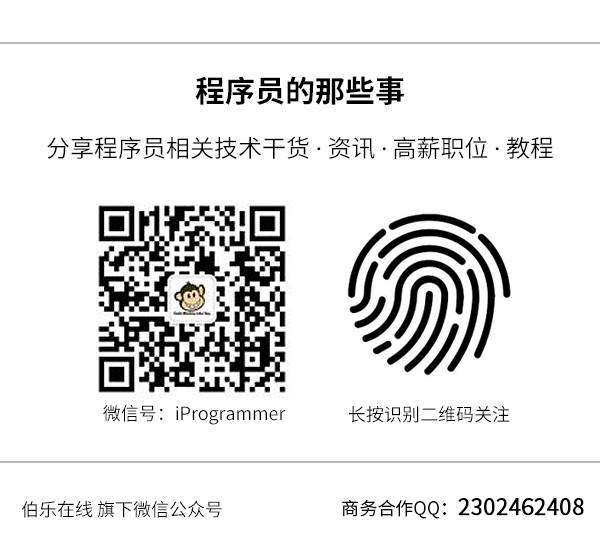(For matters concerning programmers, add a star)
This article is reprinted from the internet, and the original author has not been identified. If you know, please leave a message.
If there is any infringement, please contact us for timely deletion. Thank you!
Hello everyone, I saw that Harbin Institute of Technology had its MATLAB authorization canceled by the United States, which will delay various research projects thereafter. A graduate student from Harbin Institute of Technology lamented online that the gap between the engineering software industry and foreign countries is over 30 years!
MATLAB is just the tip of the iceberg; our dependence on foreign technology is beyond imagination. As a senior software engineer with over a decade of experience in the United States and a PhD background in science, I would like to discuss why this issue exists. Is it due to insufficient funding, a lack of high-quality talent, or simply because we do not place enough emphasis on it?

Firstly, we do have the world’s largest trading platform, Alibaba, but on the other hand, over 99.99% of industrial basic software requires authorization from the US and Europe. This reflects a fundamental issue at the base level and an application level. Industrial software spans multiple foundational disciplines, and the application of pure information technology industries is limited; without a solid foundation, the upper-level applications can only mimic others…
Alibaba is indeed impressive, but can you say that it is an independent technology developed from the ground up? Even Jack Ma would hesitate to say that, as the concept of e-commerce was learned from the United States.
Take MATLAB as an example; can we independently design something like it? From an application perspective, Dr. Gu Yingqiong believes it is not difficult. This should be a national initiative, led by the Ministry of Education, to invest resources and funds to develop a Chinese version of MATLAB. Its purpose would be for use by various universities and domestic enterprises. If all universities use it, then there will be a market.
Some people think MATLAB is very powerful! Dr. Gu Yingqiong believes that if you break it down, the content inside is quite simple. The algorithm modules have various open-source C++ and Python libraries. The front-end software interface is even simpler; it is all modular. The most important aspect is the various library functions you call. If a company integrates these open-source algorithms, it would be just that.

The real technical challenge lies in the initial creation of algorithms, not in learning to call MATLAB’s library functions! Industrial software is difficult; it is not just a programming issue.
For example, if Dr. Gu Yingqiong wants to use industrial software to model a car, the software must support aerodynamics, materials science, mechanics, etc., to simulate real situations. Software engineers need to possess cross-disciplinary capabilities.
China does not lack programmers, nor do we need them to understand your field. As long as you clarify your processes, the rest can be handed over to programmers.
The tricky part of software issues lies in the lack of a market ecosystem behind the software, and the problem with engineering software lies in the level of research. The 30-year gap you mentioned between domestic and foreign software can only be referred to as a 30-year gap in research levels (the specific gap is unclear); do not hastily claim that software is 30 years behind.
Professional-grade software does not make money, and general companies are certainly unwilling to invest heavily in development. However, without development, there will be nothing to use; this is a vicious cycle.
China still has a significant gap with some Western countries in high-end technology, which must be acknowledged. Database technology has a market, and investment yields returns, so it can be heavily invested in. However, research software has a small market, complex algorithms, and a long road ahead…
Alas, the feeling of being choked by others is really unpleasant. Some domestic software developed is mostly not used to help improve but is directly compared with foreign software. If it is not good, it is simply abandoned, and domestic software cannot develop. Now that foreign software is banned, there is a call for domestic software.
If everyone had formed a national consensus from the beginning for comprehensive domestic production and systematic development, Dr. Gu Yingqiong believes we would not be in such a painful and passive situation now!
However, from the current situation, a ban is the best option. If it is not banned, we will continue to rely on it. Although the ban will have a significant impact in the next three to five years, it will at least allow those in power to see the shortcomings of industry software, and then companies will strive to enter this blank market.
It is not that non-domestic products cannot be used, but we are accustomed to the convenience of leading products. Domestic products will gradually emerge; as long as the motivation is sufficient, the problems will be solved. The difficulty in creating these software lies in the fact that those who can write programs do not necessarily have an engineering background.
Developing this software requires individuals with at least a master’s degree in engineering and high capabilities in the software field… These individuals are already scarce, and their salaries must be at least 300,000 a year (this is the most basic). Not to mention, Dr. Gu Yingqiong knows many so-called developers in China, and eighty percent of them are just coders!
Professional software engineers in specialized fields are even rarer! Industrial-grade software is meticulously crafted, requiring not only money but also the experimental validation of relevant personnel. To catch up, a down-to-earth approach is essential.
This is not just a software issue; it is a problem of the entire foundation and scientific application. The core of simulation software is mathematics, physics, and chemistry, along with software development; the technical difficulty of software development itself is not high!
What is meant to come will always come. The gradual soft decoupling between China and the US is better than a sudden hard decoupling; at least it allows domestic industry personnel to be alert and provides critical buffer time. From this perspective, it may not be a bad thing.
Many people think that developing software is not that difficult. If it is just about writing code and considering algorithms, it can definitely be figured out in a short time. However, as engineering simulation software, it is far more than just writing code.
It involves a lot of foundational research work, clarifying the internal connections of various complex situations in the engineering field, while making reasonable simplifications to ensure that the results closely align with engineering reality. It requires people, money, and time, and Dr. Gu Yingqiong believes this is precisely what we lack and cannot quickly make up for.
There will hardly be any companies dedicated to researching such highly specialized software; they are either game companies or those promoting big data. Once it comes to very specialized software, they find it is all someone else’s. In the short term, there is no profit, and subsequent needs require substantial professional investment. Unless it involves national security, the rest is basically hopeless in China; there are no people, no money, and currently, the Chinese are too impatient. Few are focused on technology; most are just trying to make quick money and engage in capital operations. Just like the cameras I often use, there are Sony, Panasonic, and Fujifilm. Domestic products cannot compete; perhaps they can imitate a lens once the patent expires, but the main unit’s algorithms can never be replicated. The reality is that China is still relatively backward in many aspects; we must recognize the reality and not live in an inflated dream.

There is a saying: Do not reinvent the wheel! If one day the wheel is not allowed to be used, you can only walk.
Theoretically, these professional software need cooperation from universities, research institutes, and other scientific research units to be developed, and a batch of master’s and doctoral students must continuously iterate. However, as everyone knows, the domestic research environment makes it very difficult to seriously do something; very few can focus on research. Not to mention, if the US cuts off all basic software from China, what can we still do? These things cannot be developed in a year or two, so we should not be blindly optimistic. We need to think about how to improve the research environment, allowing people to utilize their talents and resources effectively, which is a hundred times better than just shouting slogans.
The real problem in China does not lie here. In foreign countries, companies conduct R&D because once developed and commercialized, it can turn into profit and make big money. Chinese companies do not engage in this; it is all research institutions doing the R&D. Why don’t companies do it? R&D requires massive funding, which needs to be converted into product profits to sustain R&D. However, China lacks patent protection; once a person is poached, the hard work is wasted, and the technology is taken away. What can research institutions develop? National civil servants have iron rice bowls; who would bother with that?
It feels like companies like Alibaba and Pinduoduo have changed the business landscape, making walking turn into running, significantly improving efficiency. However, industrial software is like turning crawling into standing upright; the speed may not be very obvious. But in one second, it goes from being an animal to being human. Our focus is all on real estate, which can make quick money, while the most core and foundational elements are scarce! The difficulty of these software lies not in the software itself, but in the models! Establishing models requires not only money and time but also talent.
Rome was not built in a day, but if given 30 years with the right approach, there will inevitably be a Rome that the world admires!
– EOF –

Recommended Reading Click the title to jump
1. Reflections on the Ban of MATLAB: How to Create Products Like It?
2. A One-Line Code Tapping, WeChat’s Simplest Easter Egg
3. A Cute Girl’s Voice to Accompany You in Coding, a Magical VSCode Plugin
Follow “Matters Concerning Programmers” and add a star to not miss out on industry news

Industry news, I am watching❤️